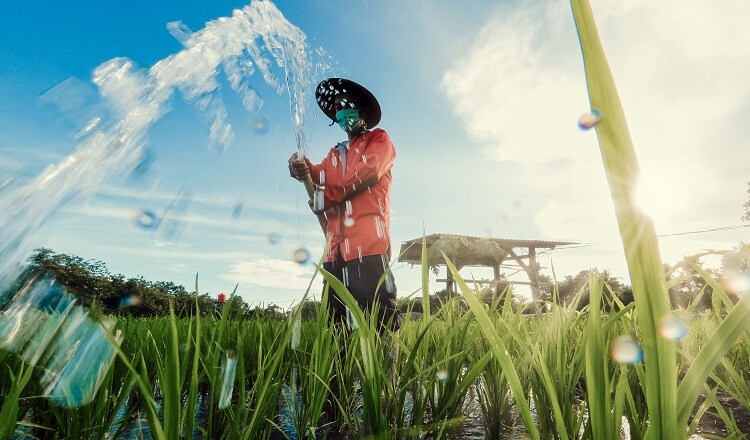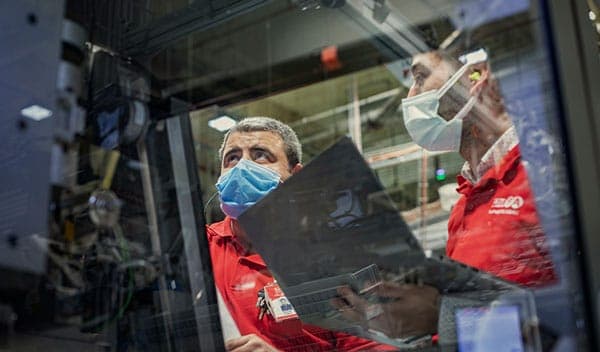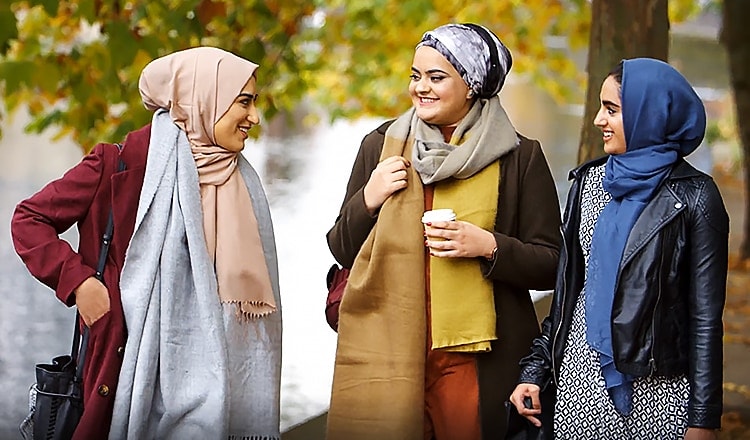Philip Morris International’s (PMI) affiliate in Indonesia, Sampoerna, holds a pivotal role in the country’s economy. In 2023, it provided direct and indirect employment to more than 80,000 people and manufactured products in 46 production facilities operated either directly by Sampoerna or by third-party operators across Indonesia. Sampoerna also invests in empowering its business partners and communities where it operates, such as the Sampoerna Retail Community (SRC), a community of small-medium enterprises, and the Sampoerna Entrepreneurship Training Center (SETC), a program that aims to increase participating retailers’ competitiveness through ongoing business assistance. As of the end of 2023, the SRC and SETC have trained more than 243,000 retailers (since 2008) and 72,000 people (since 2007) in Indonesia, respectively.
Approximately 90 percent of the 80,000 people Sampoerna employs (directly or indirectly) are hand rollers of kretek cigarettes. This manual work requires skill and precision and, historically, women have shown the dexterity to perform this task. Currently, all the kretek cigarettes’ hand rollers are women, and they are often the main financial support of their household.
Many of them work until they reach retirement age. When that time comes, they face significant changes in their lives, such as an important modification in their daily routine, a lack of connection with fellow workers, and the loss of a steady income to support their families. Sampoerna established the HOPE program to help their employees prepare and embrace retirement, with a primary focus on the hand-rollers community.
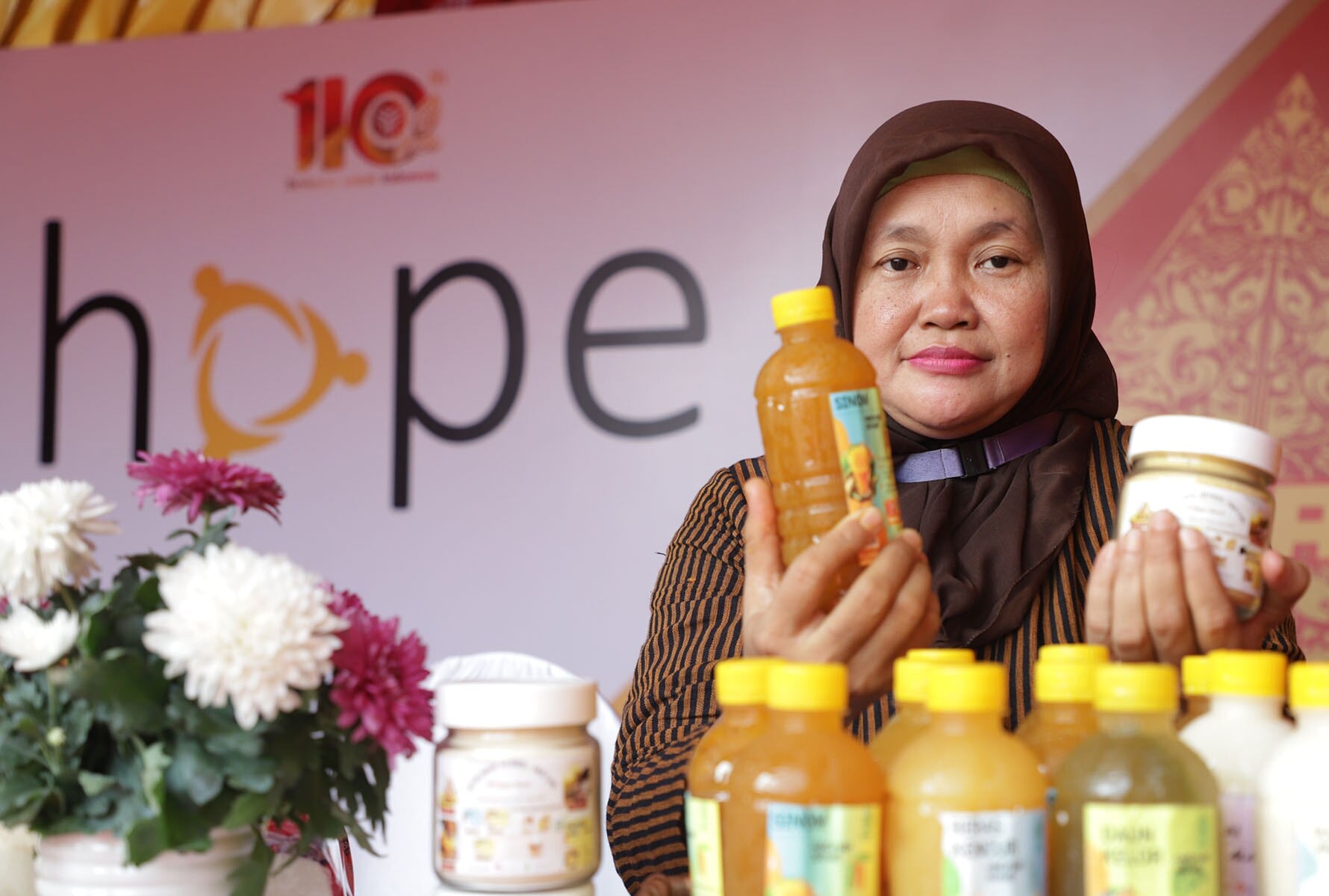
Building HOPE for retirement
Launched in 2019, the HOPE program’s first objective is to equip employees with the skills, knowledge, and resources to help them establish a new life beyond retirement. The program was first introduced solely to employees—especially hand rollers within one year of retirement—but in 2023, it was expanded to include all employees interested in learning new skills and boosting their entrepreneurial skills. Participants’ family members are now also encouraged to join the training sessions. By involving participants’ relatives in the program, the goal is to foster a supportive environment for employees at home in their pursuit of new endeavors.
Participation in the program is voluntary. It offers a series of learning opportunities focused on financial literacy, and entrepreneurship topics. On average, the overall program runs for 6 months, and coaching is usually held for two to three business days per topic.
Training sessions, which are interactive sessions of learning, are held in class, while seminars, which have a more static format, can be either online or offline. Both training sessions and seminars are conducted by third-party trainers. During the program, participants also have opportunities for one-on-one time with trainers to receive additional support or ask questions about specific challenges they may be facing.
Financial literacy training sessions and seminars focus on building skills in managing personal and household finances, improving welfare, and fostering income security during retirement. They teach basic personal finance concepts such as: Developing savings, starting an emergency fund, and reducing debt.
Entrepreneurship training sessions and seminars focus on teaching how to generate new sources of income, either by starting a new business or growing an existing one. There are more than 30 course offerings across four categories: Food and beverage, trade, service, and agriculture.
Participants can choose training sessions based on their personal interests and talents. For example, they may opt for entrepreneurship training sessions in culinary, catering, laundry services, and others, while also enrolling in a financial literacy class.
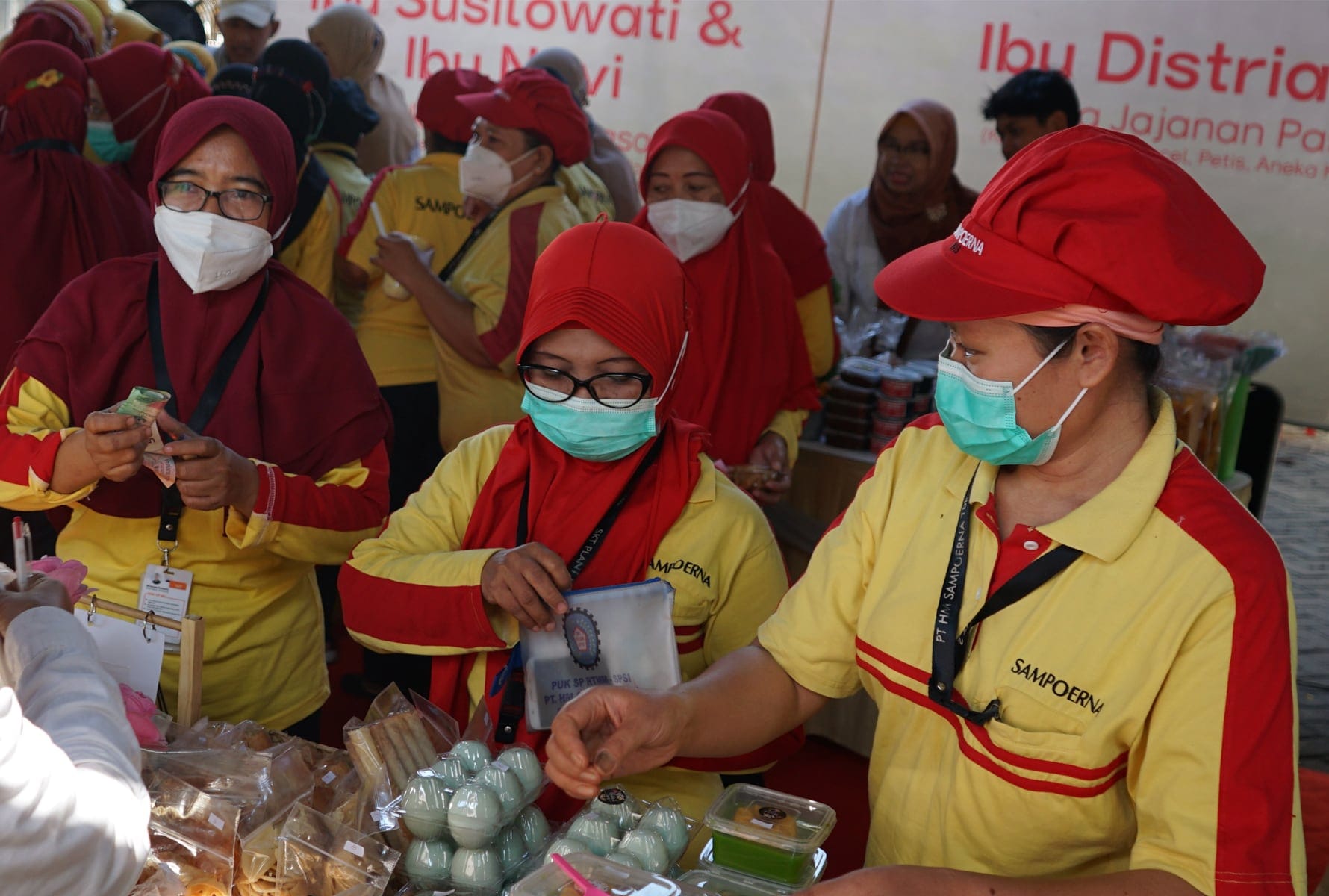
After completing the training, HOPE participants can join the HOPE alumni network, a community group chat for HOPE alumni. This forum helps HOPE alumni stay in touch, ask questions, receive peer-to-peer support, and foster cross-business collaboration.
In addition, the network provides access to seminars and advanced training sessions. This phase is to ensure smooth progression after participants finish their training sessions.
I started my business with an offline store; after the training I expanded and started to sell online too. Now, I’ve tripled my turnover per month and my followers on social media have increased.
Ragilia
kretek hand roller at Sampoerna and HOPE Program participant
Measuring success
Since its introduction in 2019, the HOPE program has trained over 4,900 people, of which approximately 3,900 are (or were) hand-rolling employees and the remainder were participants’ family members.
To evaluate the effectiveness of the program, Sampoerna’s third-party partner conducts surveys, which participants are asked to fill in upon completing the program and six months after completion. The participants’ success in the program is evaluated as follows:
- Participants are considered to have achieved improvements in financial literacy when they secure one month’s paycheck in a savings account or increase their savings by 10 percent upon completing the program.
- Participants are considered to have achieved improvements in entrepreneurship skills when they start a new business or when they record a sales increase of 10 percent or more in an existing business.
In 2023, 406 individuals participated in the HOPE program. Upon completing the program, out of the total participants:
- 35 percent reported they increased their savings by at least 10 percent.
- 44 percent reported they saved at least one month’s paycheck in their emergency fund.
- 29 percent confirmed they started a new business.
- 25 percent reported they recorded a sales increase in their existing business of at least 10 percent.
I am incredibly heartened by the progress and the outcomes of this project. The positive impact it has had on the beneficiaries naturally created a more constructive working environment. Witnessing their improvement, which has brought positive changes to their lives, fills me with satisfaction. It reaffirms the importance of this program and motivates me to continue contributing to projects that can make a difference. Last but not least our solid management commitment in this project is incredible.
Monica Andriana
HOPE project program manager
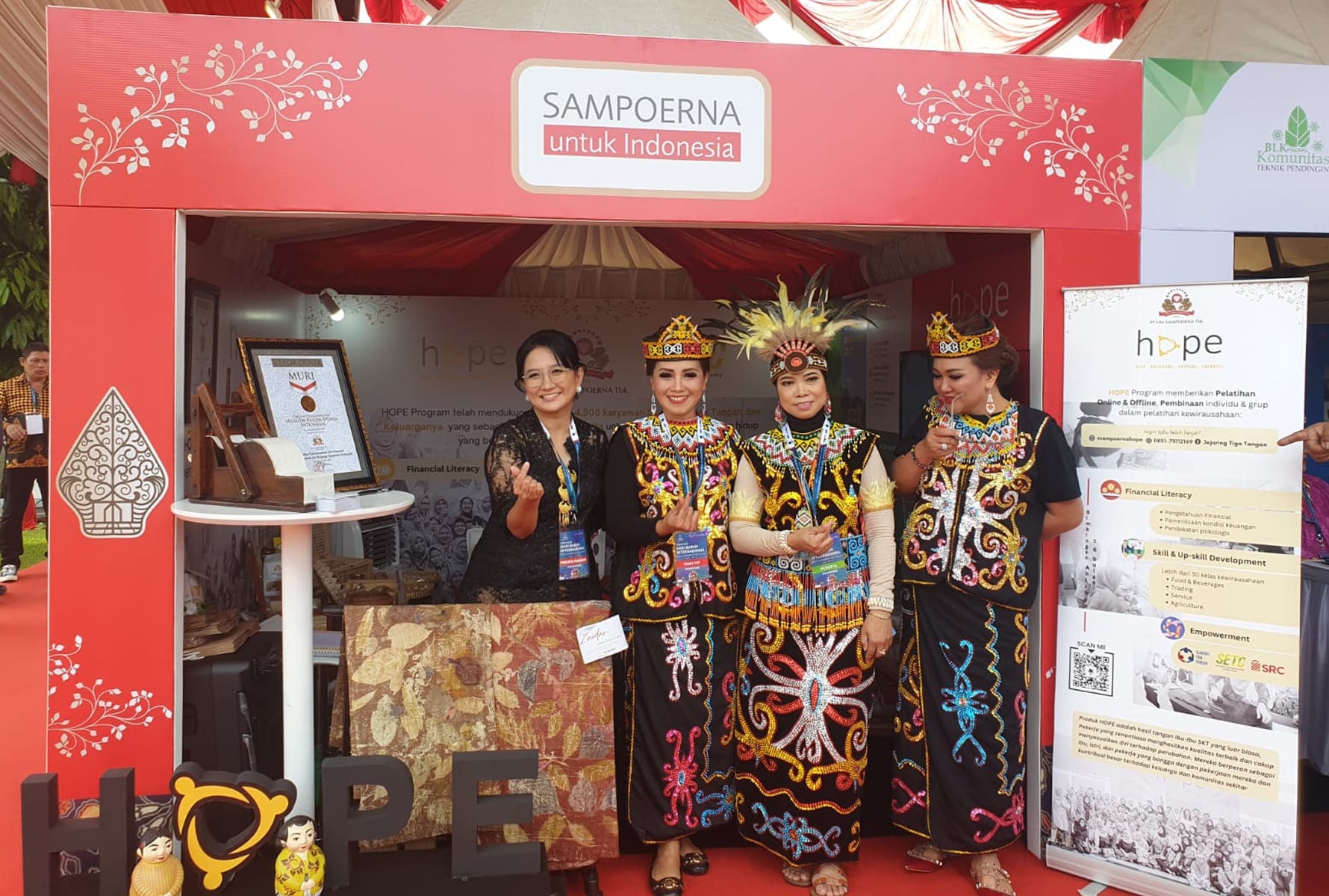
In brief, the HOPE program has proven to be an impactful initiative. By providing meaningful training opportunities to boost entrepreneurship and financial management skills, the program has enabled many participants to strengthen their financial literacy, start or expand their own businesses, generate additional income, and improve their livelihoods.
Further, the program has also contributed to promote a culture of learning and collaboration, with ripple effects at the community level, beyond Sampoerna’s direct employees as it expanded to family relatives. Family engagement in the program has steadily increased year on year: Of the 406 participants in 2023, almost 50 percent invited their relatives to participate in the training sessions, compared to 33 percent in 2022, and 8 percent in 2021.
External recognitions and next steps
The HOPE program has maintained a high level of satisfaction amongst participants, increased involvement of participants’ family members, and was recognized by external stakeholders for its contribution to local economic development.
We are proud that, through the HOPE program, many current or former employees and their relatives have gained valuable new skills and expertise that can help them manage their finances better and plan for the future with serenity. The program is a testament of our broader commitment to empower our employees and foster a positive social impact around us.
Vassilis Gkatzelis
Sampoerna’s President Director
In 2022, it received the “Entrepreneurship and Financial Training with the Largest Number of Employees and Their Families” award from the Indonesian World Records Museum (MURI), highlighting its influence on local entrepreneurship and financial literacy. In addition, the East Java Manpower Office recognized the program for the creation of novel business opportunities in the East Java communities. Its success could be replicated across diverse contexts, industries, and regions, contributing to local entrepreneurship growth and broader economic development in the communities we operate in.
Looking ahead, Sampoerna aims to expand the impact of the HOPE program in scope and scale, by enhancing accessibility, diversifying training categories, and continue fostering family involvement. Hopefully, these improvements will further Sampoerna’s efforts to empower employees, promote financial literacy, and nurture entrepreneurial spirit through the HOPE program.
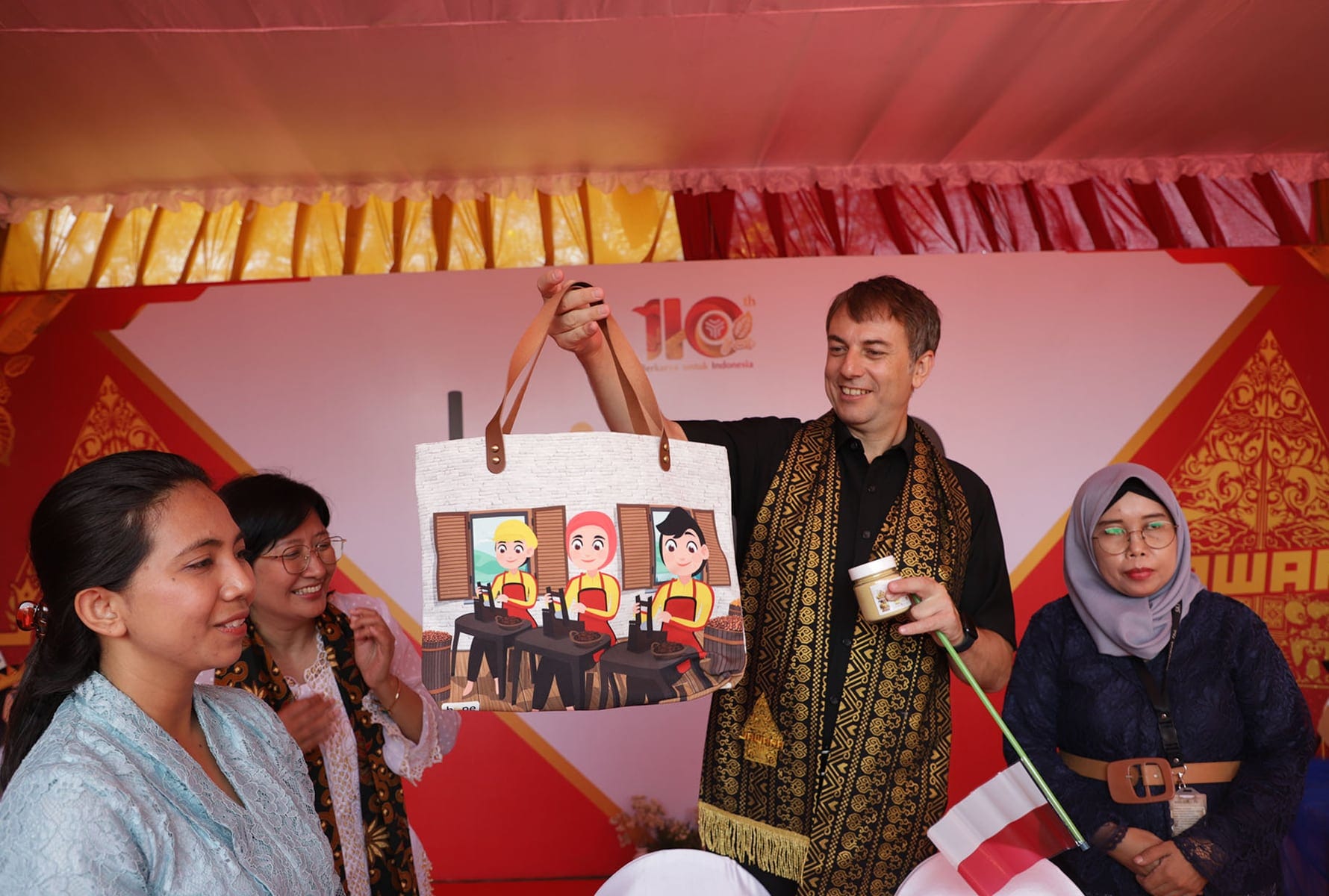

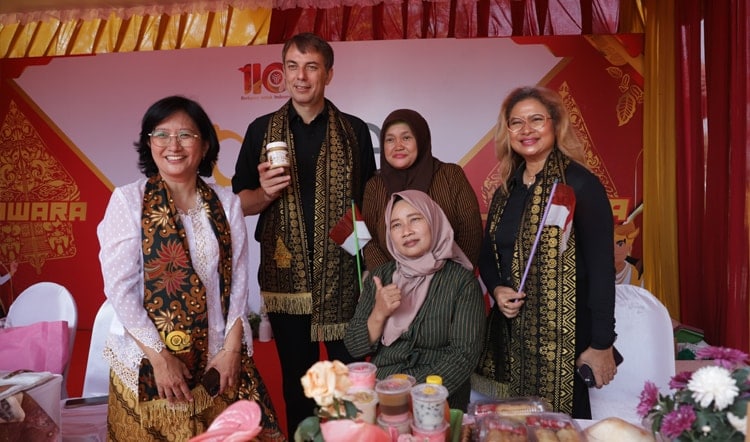
.jpg)
.jpg)
